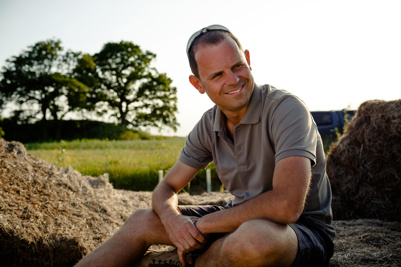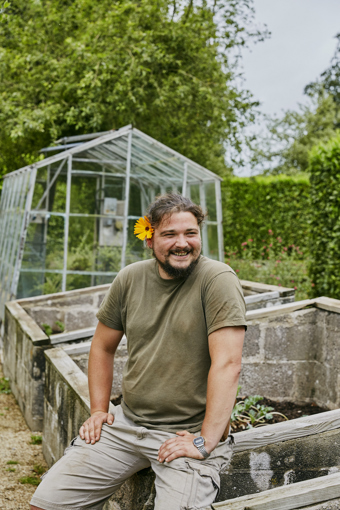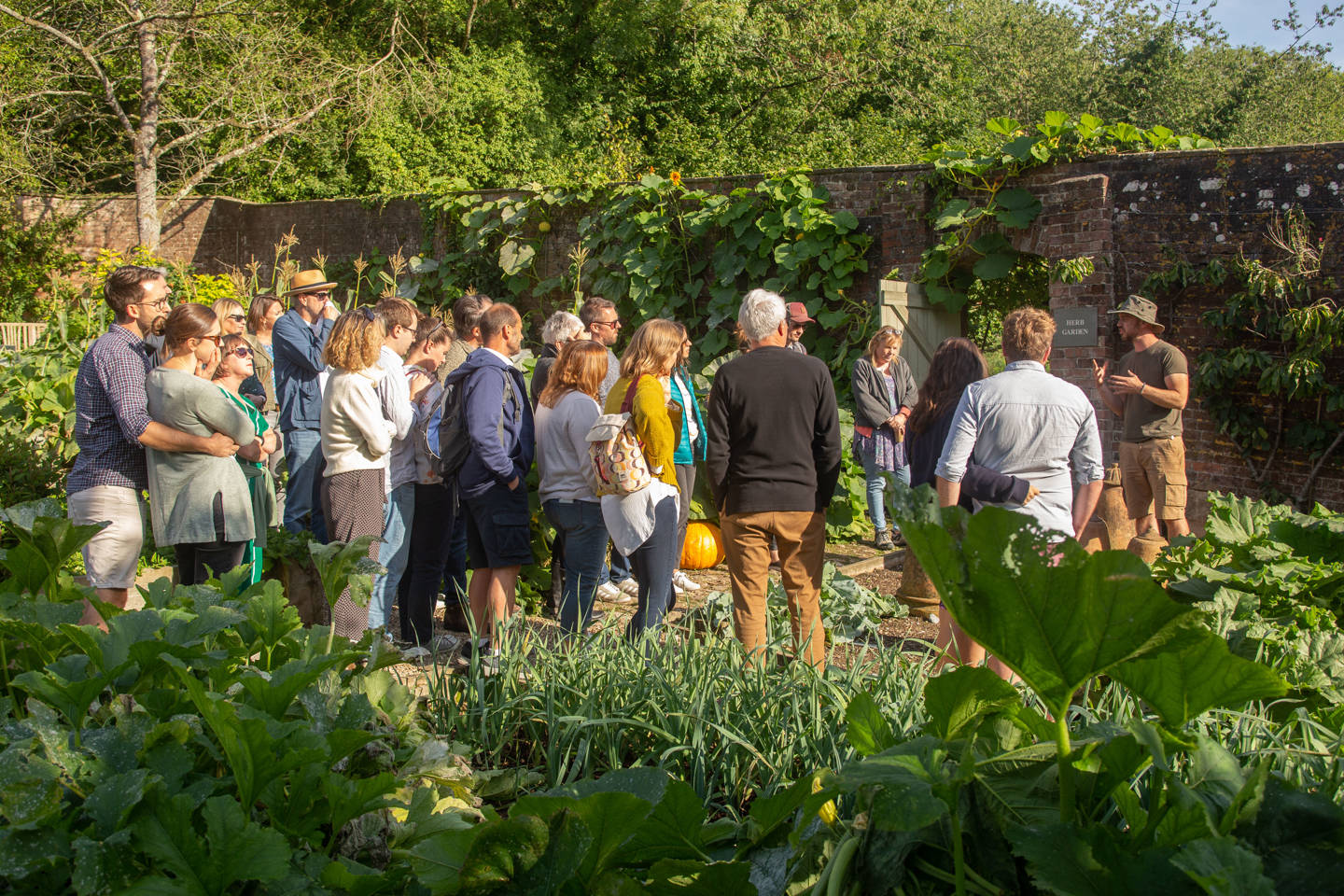Gusbourne is among the very best wineries in the UK. They’re crafting unique, individual expressions from their vineyards based in Kent and Sussex. The original Gusbourne Estate in Appledore, Kent dates back to 1410.
In 2004, Andrew Weeber took over the estate with a clear vision and a single goal: to create English sparkling wines that would stand up alongside the very finest offerings from across the globe. The first vines were planted that year. Their debut vintages of Gusbourne Brut Reserve 2006 and Gusbourne Blanc de Blancs 2006 were released to critical acclaim in 2010. Gusbourne quickly earned a reputation as a producer of outstanding quality wines, with accolades from some of the industry’s most exacting critics!
They focus on the three key champagne varieties - Chardonnay, Pinot Noir and Pinot Meunier, using a wide selection of clones to promote diversity from the fruit. Patience at Gusbourne is non-negotiable. Every wine made takes as long as it needs to finds it’s balanced equilibrium.
Gusbourne are part of the Wine Garden of England, a world-class wine trail through the stunning Kent countryside that links seven of Kent’s top wine producers to create a world-class wine trail and visitor experience in Kent. At THE PIG-at Bridge Place, Kent, we are huge supporters and friends of the Wine Garden of England and you will find the wines on our menus.
Jon Pollard has been Chief Vineyard Manager at Gusbourne since viticulture began on the Kent estate in 2004.

Ollie Hutson's career at THE PIG has also been from the ground floor up. As one of the first employees at the first one in Brockenhurst, he's now Group Head Kitchen Gardener over our seven PIGs.

Both Gusbourne and THE PIG believe strongly in supporting local communities by favouring local suppliers and employing local people whenever possible.
JP Did you know we have one thing in common, Ollie, apart from being lucky enough to spend our days outside when the weather is fantastic? If I'm right, we were both the first employees hired by our organisations.
OH You too? Yes, I was more or less employee no.1 at THE PIG in Brockenhurst back in 2011. Started as a garden grunt, quickly became head gardener and now I oversee all the head gardeners across our seven hotels from Kent to Cornwall. We love having that geographical spread and for me it presents the challenge of managing a lot of different horticultural conditions, given that the soils change as you move across the map.
JP Yes, it all comes down to soil. Both our sites are six or so miles from the sea on the first high ground you come to. Our main vineyards in Kent are planted on relatively heavy Wealden clay soils on top of Tunbridge Wells sand at about a metre down. But in West Sussex you've got flinty clay over chalk with topsoil that varies in depth. So the way the vines respond is a little different. The chalk in Sussex is the perfect aquifer, whereas in Kent water management is a bit more demanding.
OH Which I suppose means different techniques in the vineyard when it comes to pruning, because the grapes are your start point for the wines. I hear a lot of wineries talking about how they make their wine in the vineyard rather than in the blending process in the cellar.
JP That's certainly true for us at Gusbourne. The technicalities of pruning are pretty complex and depend on which of the three grape varieties you're working with. Keeping an open fruit zone is vital for good ripening. But what's even more critical for us is that we never buy in grapes, we only ever use fruit that's grown on our own land. For us that's the start of the story, it's where the authenticity of the product comes from. And frankly if you don't have authenticity what story are you trying to tell?
OH Absolutely. At THE PIG that means keeping everything local. What we call our ‘25-mile menu’ kind of speaks for itself in terms of where we source our products, but of course there's nowhere more local than home. At The Pig, 100% of what we grow is used in the restaurants. Like you, Jon, regional differences in soil mean our chefs' menus have different accents. For example, the acidic soil in the New Forest grows the best blueberries you'll ever taste but alliums can suffer from mildew, so the soil teaches you the tricks you need to apply in different areas. And that's why we have a centralised propagation centre – a 100x30 foot double-skinned self-insulating polytunnel with artificial lighting – and a specialist propagation team, whose job is to generate the healthiest seedlings possible, which we then ship out to the various Pigs. It's all homegrown.
JP Do you get a lot of interest in the gardens from the hotel guests?
OH Tremendous. I'd say 90% of our guests come into the gardens. There's nothing like seeing where the ingredients for your breakfast Eggs Florentine came from. And we're really conscious of creating an aesthetically pleasing guest experience. So we'll plant red and green lettuce in alternating rows and use companion planting to keep the plants healthy. And it's not just guests we care about – we provide the best habitats for wildlife too.
JP That is so important. One thing we find at our Kent visitor centre, The Nest, is that people are more and more informed – or want to be – about how the wine they drink is made. It used to be just trade visitors who would ask technical questions, but now the wine-loving public are keen to hear why single guyot pruning works best. A vineyard tour often ends up as a chemistry lesson – because people want to know! I had a fascinating discussion in the vineyard recently on the whole organic debate. At Gusbourne we're more persuaded by sustainability as a guiding principle. It's good to be as organic as possible, but not if your organic fertiliser comes from the Isle of Skye. The whole activity of ploughing and planting releases carbon from the ground, which is the opposite of best practice. Gusbourne is a founding member of the Sustainable Wines of Great Britain initiative. So organic yes, if done correctly, but we think it's important to take a properly holistic view of what we do.
OH Couldn't agree more. It's not the label you put on it that matters, it's the thinking behind it and the good conscience that leads you to make the right decisions. Not just for your own business but for the customers you run your business for.
At Gusbourne, they have been spending time thinking about how they can support their partners across British business. The result is an initiative they are calling Time Well Spent - you can read more stories, like the conversation above, from Gusbourne here.


